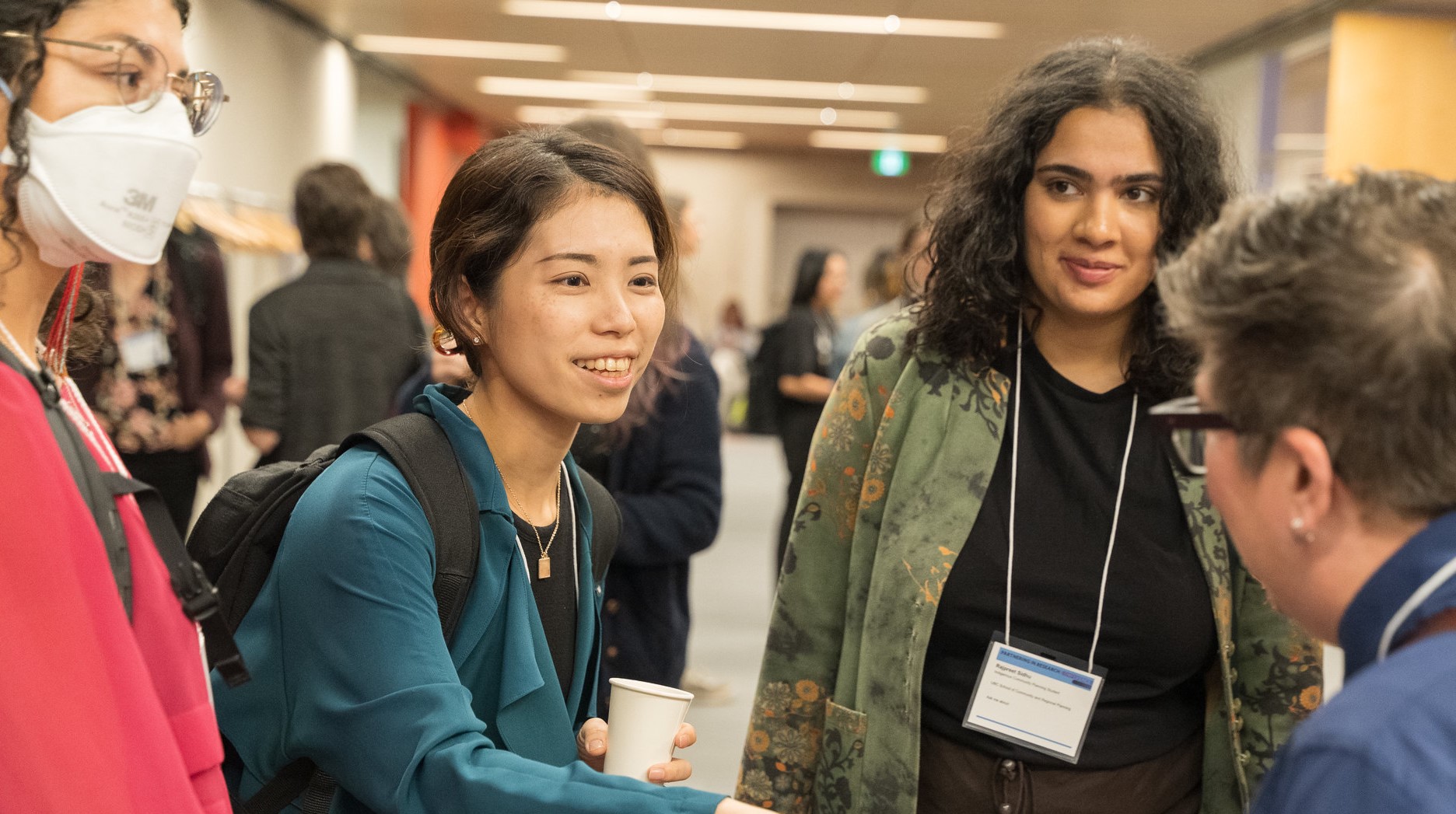
In the final years of her PhD, Katherine Cheng’s academic and career trajectory took an unexpected turn when she found herself deliberating on the impact of her research and its relevance to the community around her. With an academic background rooted in philosophy and her thesis focusing on the social construction of personal identity from a cross-cultural philosophical perspective, she wondered how her research could have more connections to community engagement. Cheng reflects, "I was questioning what I was doing and how it was useful to the community around me. I realized I yearned for more community connections."
Seeking a more grounded connection to community she began volunteering in Vancouver’s Chinatown district, working with seniors through the Yarrow Intergenerational Society for Justice. This introspective journey eventually led her to a position in which she blends her academic research background with community work, as a community-based research (CBR) coordinator at the UBC Learning Exchange, a multi-faceted hub that has been operating in the Downtown Eastside (DTES) for 25 years. Here, Cheng supports community-based research and knowledge exchange activities in Vancouver's DTES and Chinatown. She helps students and researchers build ethical connections with community organizations.
Cheng’s approach to community-based research is influenced by her PhD work, as she continuously engages in discussions around the nature of philosophy, its criteria, foundational principles and the exclusion of certain works from the philosophical canon. Whose voices are not being heard? Why are we doing things one way and not another? Cheng emphasizes the importance of questioning and reflecting our concepts of “research” and “experts.” This, she believes, allows researchers and the community to collaborate more meaningfully and recognize and leverage their respective expertise, including expertise from lived experience.
Researchers often focus on designing their research, before engaging with relevant communities to co-design or develop community research projects. To facilitate more meaningful and productive knowledge mobilization and exchange, she insists that involving community partners at the earliest stages is crucial. This approach allows community partners to play a significant role in decision-making, addressing questions, designing projects that best serve participating community members, and determining the final deliverables that can support the goals of the community around, for example, advocacy or policy impact.
She adds, “I am grateful to witness these principles in action, being part of a team that has long-term connections with people in the DTES and respects the knowledge that community members and organizations bring to community-based research and practices”
Cheng recognizes that community-based research inherently involves uncertainty, and so flexibility becomes pivotal. Community work can speed up due to emerging needs or slow down due to competing priorities. Cheng adds that this is an important consideration when building a plan. “Taking on a community-based research project requires being open to uncertainty. You need to be open to the possibility that the project is going to change in some fundamental ways, and you may not necessarily know how the project, or the process, is going to be.”
For scholars new to community-based research, Cheng's advice is simple - “Go volunteer and immerse yourself in the community. Set aside your research agenda and get to know people personally. Know them as a person rather than just a research partner or participant so that you can learn from them in a more meaningful way. Be ready to be questioned."
She emphasizes, "It's equally important to recognize the transformative nature of engaging in community-based research, as it involves a great deal of personal and psychological growth. You may be drastically challenged, questioning your purpose and how you situate yourself in relation to others. This is a good thing. It is uncomfortable. But it is a good thing that will lead to better research and more impact.”
Finally, Cheng encourages researchers to “Always consider how your work can contribute to and amplify the existing expertise and strengths within the community.”
Kx takeaways:
- Community goals may be fast or slow-paced and changing, requiring flexibility from researchers to match their rhythm. We need to redefine academic success in relation to community relevance.
- Community based research should embrace an integrated knowledge translation (iKT) approach right from the beginning to partner with community members from the start so that the research can have relevance and impact.
- A community-based approach can transform not only research but who we are as people. This is good. This is also uncomfortable. We need to start having discussions about how to support students and each other through this discomfort.
Interested in learning more about community-based research and knowledge exchange in Vancouver’s Downtown Eastside, feel free to reach out to Katherine Cheng at: Katherine.cheng@ubc.ca